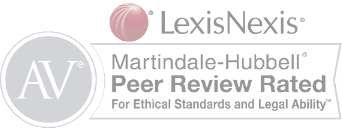What Employers Should Know About California’s New Pay Transparency Laws
![]()
![]()
Need answers fast? Speak with the top San Diego employment attorney at 619-807-5299 today for tailored guidance.
Mandatory Pay-Scale Disclosures in Job Postings
A “pay scale” means the salary or hourly range the employer honestly believes it will pay for the role. SB 1162 extends this duty beyond internal candidates, requiring the range to appear in every public advertisement if the employer (or any integrated entity) has 15 or more workers. Labor Commissioner investigations may begin with a single applicant’s complaint; if a violation is found, the Commissioner can levy a fine for each non-compliant posting—numbers that escalate quickly for high-volume recruiters.
Postings must also retain any “other compensation” language—bonuses, equity, commissions—in plain view. Importantly, removing a range after receiving applications does not cure the breach; best practice is to correct, repost, and document the change.
Employees’ Expanded Right to Know Their Own Range
Any California employee, regardless of the firm’s size, may ask for the pay scale of their current job. The company must respond in a reasonable time and keep job titles, wage-rate histories, and posted scales for at least three years. Lack of records creates a rebuttable presumption that the employer violated the statute—an expensive presumption to overcome. Best practice is to embed pay-scale fields inside onboarding forms and sync them automatically to cloud storage with version control.
Annual Pay-Data Reporting to the Civil Rights Department
Private employers with 100 or more workers—including those hired through labor contractors—must upload anonymized payroll, hours-worked, median pay, and demographic data to the Civil Rights Department (CRD) every spring. The report covering the year 2024 is due May 14, 2025. Missing or inaccurate reports can cost $100 per employee for a first offense and $200 thereafter, plus CRD’s legal fees to compel compliance.
Remember: each file lists headcount, hours worked, and pay broken into U.S. Bureau of Labor Statistics pay bands, further sliced by gender, race, and ethnicity. CRD has refused late or partial reports; one large retailer paid six-figure penalties in 2024 before its data was accepted. Start preparing exports in January, building cross-checks that reconcile payroll totals with W-2 lines to prevent mismatches.
Enforcement Trends and Penalties
SB 1162 added teeth to existing anti-retaliation provisions. Denying a raise, changing shifts, or terminating someone for requesting pay data can generate a standalone Labor Code claim. Worse, such acts invite lawsuits under the Private Attorneys General Act (PAGA), where penalties quickly multiply. Recent 2024 amendments let employers slash penalties by up to 85 percent if they cure violations pre-litigation—another reason to audit postings and wage statements before a notice arrives.
Your Practical Compliance Checklist
Aligning advertisements, payroll databases, and reporting systems sounds daunting, but a phased plan keeps the project manageable. Begin with template revisions, move to internal audits, and finish with training and automated retention.
- Revise posting templates to include a required pay-range field, and program the applicant-tracking system so no posting goes live without it.
- Audit current salaries against intended ranges, adjusting or documenting legitimate variations such as tenure or measurable performance.
- Map job codes in HR software to the Bureau of Labor Statistics codes used in the CRD report, preventing last-minute recoding.
- Educate managers on how to answer pay-scale requests promptly and why retaliation is prohibited.
- Automate recordkeeping with cloud storage and version control so that each range change is date-stamped.
- Schedule a policy review with a skilled California employment lawyer to catch new FAQ updates before year-end postings.
Employers that treat pay transparency as part of a larger equity strategy—rather than a posting-only duty—reduce the risk of harassment claims and bolster recruiting. Transparent ranges cut time-to-hire and attract diverse applicants, according to recent CRD survey data.
Why Acting Now Pays Off
California Civil Rights Department surveys released in 2024 show 70 percent of applicants bypass ads that omit salary ranges. Firms that comply early report 20-percent faster recruitment and fewer declined offers. Conversely, retrofitting hundreds of legacy postings or rebuilding a rejected CRD report drains more time and dollars than a proactive audit led by an employment lawyer in San Diego.
How Our Firm Helps Businesses Stay Ahead
John P. Martin has been resolving wage-and-hour conflicts since 2012. California’s pay-scale era rewards employers who embrace openness and comply early. For strategic advice tailored to your workforce size and industry, call 619-807-5299 or complete our online form to get ahead today.





